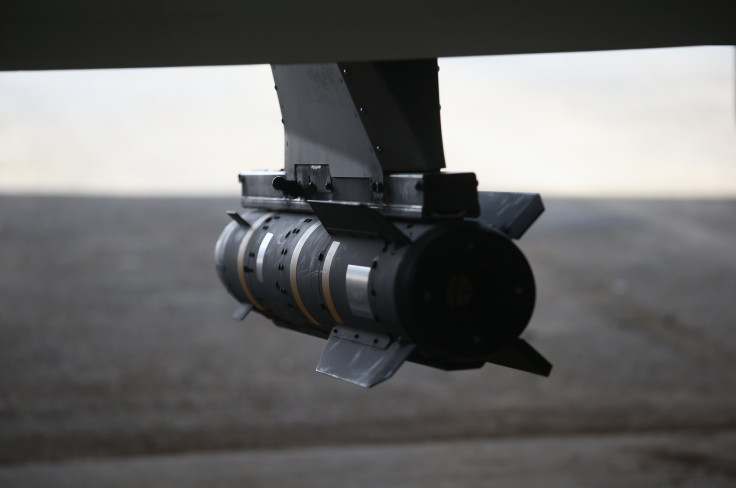Missing US Hellfire Missile Was Mistakenly Shipped To Cuba, Report Says

A dormant U.S. Hellfire missile, intended to be sent to Europe for training purposes, was mistakenly shipped to Cuba in 2014, the Wall Street Journal reported, citing sources. The incident is one of the worst-known mistakes of its kind as it could have led to a loss of sensitive military technology.
U.S. authorities, who have been working to improve ties with Cuba, have tried to get Havana to return the missile. Investigators in the U.S. are also following the paper trail to determine if it was a shipping blunder or the work of criminals or spies, the Journal reported. Sources added that most of the clues could be found in Europe, and the process of gathering evidence could take years due to the transnational nature of the case.
“Did someone take a bribe to send it somewhere else? Was it an intelligence operation, or just a series of mistakes? That’s what we’ve been trying to figure out,” a U.S. official told the Journal.
Hellfires are air-to-ground missiles that are often fired from helicopters. They were first made decades ago to be used as antitank weapons but have since been modernized. They are now a key part of the U.S. government’s antiterrorism arsenal, fired from predator drones used to carry out lethal attacks. The missing missile, which was manufactured by Lockheed Martin Corp., reportedly did not contain any explosives but officials are worried that Cuba could share the sensors with countries like Russia, China and North Korea, with whom Washington has thorny relations.
The missile was sent by Lockheed Martin Corp. after the company got permission from the State Department.
Sources told the Journal that the missile was sent to Spain and was used in military exercises. While shipping it back to Florida, the missile was loaded on a truck to transport it to a flight from Madrid to Frankfurt, Germany. However, the missile was tracked to another truck operated by Air France that took it to Charles de Gaulle Airport in Paris and instead placed it on an Air France flight to Havana, where it was seized after officials noticed the labeling on the shipping crate.
“Now it’s a proliferation concern—someone else now understands how it works and what may have been cutting edge for us is deconstructed and packaged into what other players sell on the open market—and possibly provided to countries that we wouldn’t sell to,” Peter Singer, a senior fellow at the New America Foundation, said, according to the Journal.
If the missile was sent to Cuba intentionally, it would constitute a violation of the Arms Export Control Act and of the Cuban sanctions laws. U.S. military exports are currently banned to 25 countries and Cuba was added to the list in 1984. The report also added that each year, about 1,500 instances of potential violations of the Arms Export Control Act are reported and most of them are due to mis-shipment.
“Mis-shipments happen all the time because of the amount and volume of the defense trade,” a State Department official said, according to the Journal. The missile was found to be missing at a time when the U.S. and Cuba were holding secret negotiations to end a standoff that started in the 1950s. Both the countries announced that they would normalize relations, reestablish embassies and exchange prisoners in Dec. 2014.
If the incident is deemed a human error, the criminal investigation in the case would end and the State Department would be required to decide whether to begin a settlement case with Lockheed Martin, which has been cited for 16 violations in the past. Defense companies like Northrop Grumman Corp. and Boeing Co. have also entered into consent agreements in the past while BAE Systems PLC was noted to have paid the Treasury $79 million in 2011 for a similar instance of violation.
“This is a complicated business, mistakes are inherent in complicated businesses,” the State Department official said, adding: “Mistakes are a part of any human endeavor. Mistakes are made.”
© Copyright IBTimes 2024. All rights reserved.












